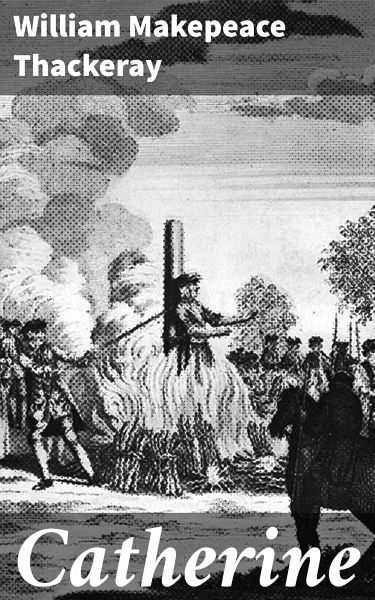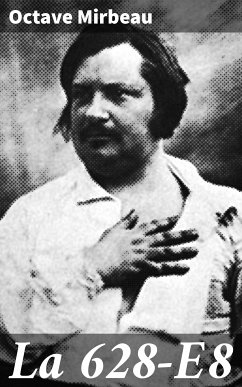
Catherine (eBook, ePUB)
Enriched edition. A Story
Kommentar: Kimball, Clayton / Redaktion: Good Press

PAYBACK Punkte
0 °P sammeln!
In "Catherine," William Makepeace Thackeray delves into the complexities of love and desire, crafting a narrative steeped in irony and social commentary. Set against the backdrop of early 19th-century England, Thackeray employs a rich, satirical prose style that mirrors the frivolous society he critiques. Through the life of Catherine, a spirited and somewhat rebellious young woman, Thackeray explores themes of marriage, fidelity, and the societal expectations placed upon women, making it a pivotal work within the Victorian literary canon that challenges the norms of its time. William Makepeac...
In "Catherine," William Makepeace Thackeray delves into the complexities of love and desire, crafting a narrative steeped in irony and social commentary. Set against the backdrop of early 19th-century England, Thackeray employs a rich, satirical prose style that mirrors the frivolous society he critiques. Through the life of Catherine, a spirited and somewhat rebellious young woman, Thackeray explores themes of marriage, fidelity, and the societal expectations placed upon women, making it a pivotal work within the Victorian literary canon that challenges the norms of its time. William Makepeace Thackeray, renowned for his sharp wit and keen observation of social mores, was influenced by his own experiences with love and loss, as well as his dissatisfaction with the societal constraints of his era. As a contemporary of Charles Dickens, Thackeray's works often reflect the complexities of human nature and the class struggles of Victorian society. "Catherine" can be viewed as a personal exploration reminiscent of Thackeray's own romantic misadventures, rendered with both humor and poignant realism. Recommended for readers seeking a nuanced exploration of love and a critique of societal norms, "Catherine" offers a compelling glimpse into the heart of Victorian England. Thackeray's blend of satire and sincerity captivates, making this novel a must-read for anyone interested in the evolution of modern literature and the intricacies of human relationships. In this enriched edition, we have carefully created added value for your reading experience: - A succinct Introduction situates the work's timeless appeal and themes. - The Synopsis outlines the central plot, highlighting key developments without spoiling critical twists. - A detailed Historical Context immerses you in the era's events and influences that shaped the writing. - An Author Biography reveals milestones in the author's life, illuminating the personal insights behind the text. - A thorough Analysis dissects symbols, motifs, and character arcs to unearth underlying meanings. - Reflection questions prompt you to engage personally with the work's messages, connecting them to modern life. - Hand-picked Memorable Quotes shine a spotlight on moments of literary brilliance. - Interactive footnotes clarify unusual references, historical allusions, and archaic phrases for an effortless, more informed read.
Dieser Download kann aus rechtlichen Gründen nur mit Rechnungsadresse in A, B, BG, CY, CZ, D, DK, EW, E, FIN, F, GR, H, IRL, I, LT, L, LR, M, NL, PL, P, R, S, SLO, SK ausgeliefert werden.













